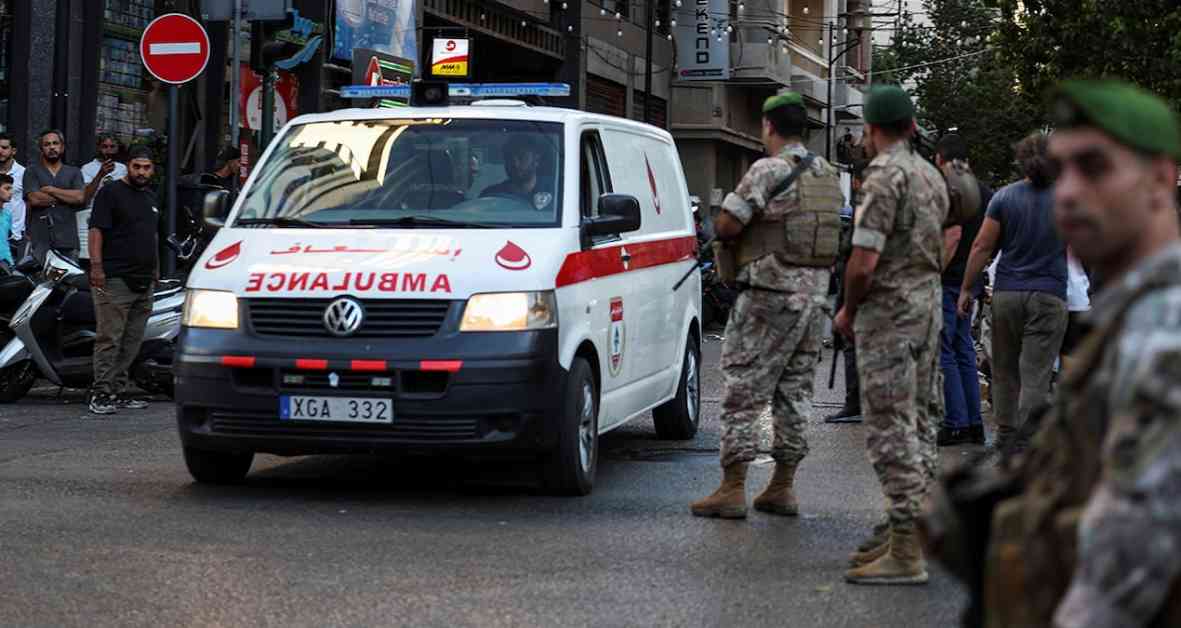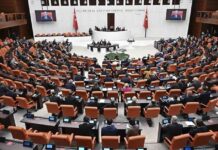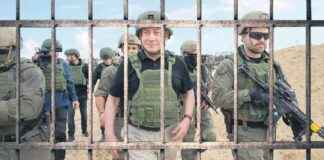Israel’s Mossad Allegedly Planted Explosives in Cell Phones in Lebanon
The Israeli Foreign Intelligence Service, Mossad, has been accused of planting explosives in the batteries of cell phones that detonated in Lebanon. It has been reported that these devices were imported five months ago.
According to a report from Sky News Arabia, based on unnamed sources, Mossad allegedly accessed Hezbollah’s cell phones in advance and inserted explosive material into their batteries. The report also mentioned that Mossad remotely increased the temperature of the batteries containing explosives to trigger the explosions.
Al Jazeera, citing a Lebanese security source, reported that the explosives placed in the devices weighed less than 20 grams, and the detonated cell phones were imported five months ago.
Specifications of the Taiwanese-Made Cell Phone
Hezbollah members were found to be using a military version of the Gold Apollo AR-924 cell phone.
These devices, produced in Taiwan, use lithium-ion batteries. With a battery life of up to 85 days and a temperature resistance ranging from -10 to +50 degrees Celsius, the devices weigh 95 grams. They have wide signal reception capabilities, are resistant to dust and water, and can be charged via USB-C.
Nasrallah’s Warning on Cell Phones
Hezbollah leader Hasan Nasrallah had previously warned members of the organization not to carry cell phones, stating that Israel could use these devices to track their movements and launch targeted attacks. A Hezbollah official described the incident as the “biggest security breach to date.”
Reuters reported that the detonated cell phones were brought in by Hezbollah in recent months and were the latest models available.
11 Dead, 4,000 Injured
Simultaneous explosions occurred in the cell phones used by Hezbollah elements in Lebanon.
The Ministry of Health announced that nine people, including a child, lost their lives due to the detonation of cell phones used by Hezbollah members, with approximately 4,000 individuals sustaining injuries, 400 of them severely.
Israel has not issued any statements regarding the matter.
Investigation into Mossad’s Alleged Actions
The allegations against Mossad have sparked international concern and calls for a thorough investigation into the matter. The use of explosive devices in cell phones raises questions about the safety and security of communication devices worldwide.
Political leaders from various countries have expressed their condemnation of such actions and called for accountability for those involved. The implications of using explosive-laden cell phones as a means of sabotage have raised alarms in the intelligence community.
International Response and Calls for Justice
The international community has urged for a transparent investigation into the allegations against Mossad and has called for justice for the victims of the explosions in Lebanon. The use of such tactics in conflict zones has been deemed as a violation of international laws and norms.
Countries have emphasized the need for greater oversight and regulation of intelligence agencies to prevent similar incidents from occurring in the future. The safety and security of civilians should be prioritized above all else, and actions that endanger innocent lives must be condemned.
Implications for Regional Stability
The alleged actions of Mossad in planting explosives in cell phones have raised concerns about the stability and security of the region. The use of such tactics in proxy conflicts can escalate tensions and lead to further violence and instability.
Regional powers must work towards de-escalation and dialogue to prevent the situation from spiraling out of control. The international community plays a crucial role in mediating disputes and promoting peace-building efforts to ensure the safety and security of all individuals in the region.
In conclusion, the allegations against Mossad regarding the planting of explosives in cell phones in Lebanon have serious implications for regional security and stability. The international community must come together to address these concerns and ensure accountability for those responsible for such actions. The safety and well-being of civilians should be paramount in all conflict situations, and steps should be taken to prevent similar incidents from occurring in the future.





















